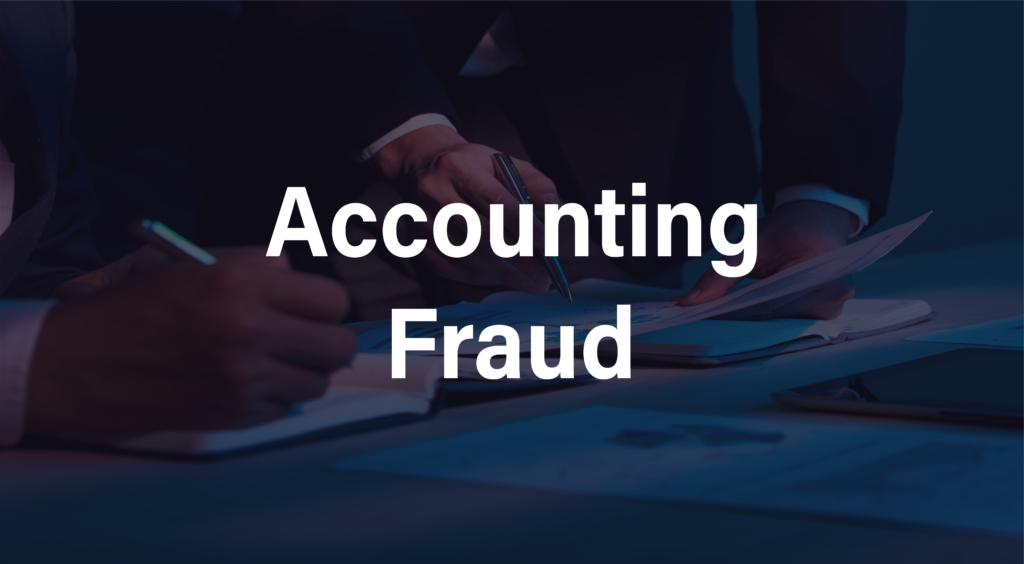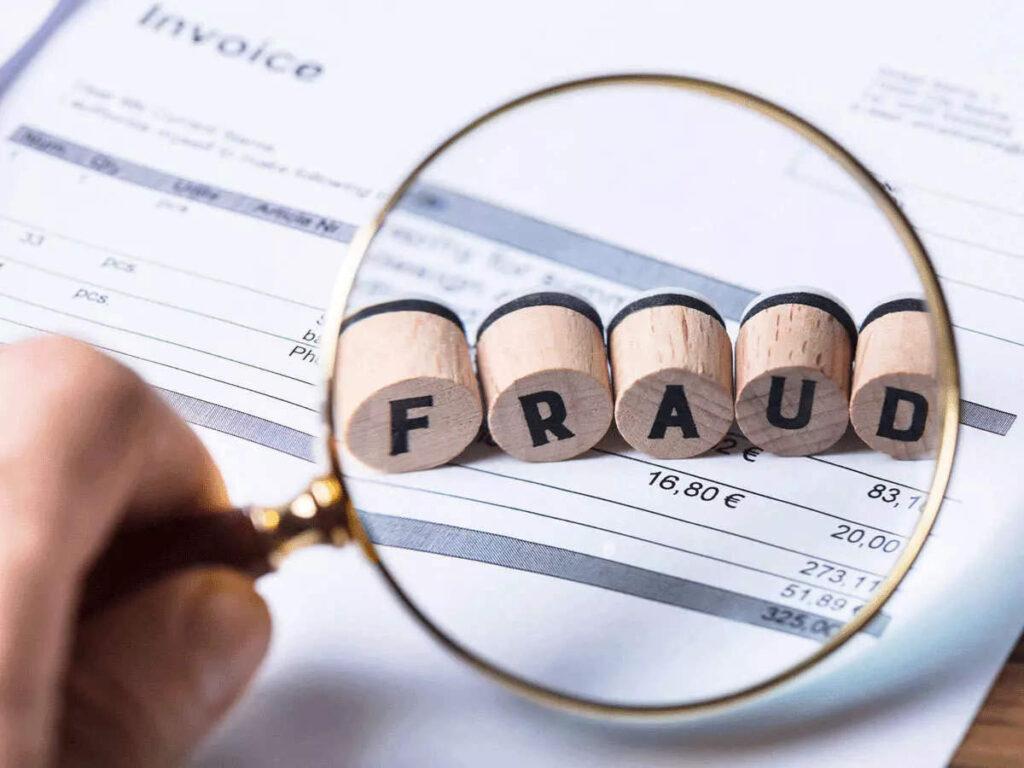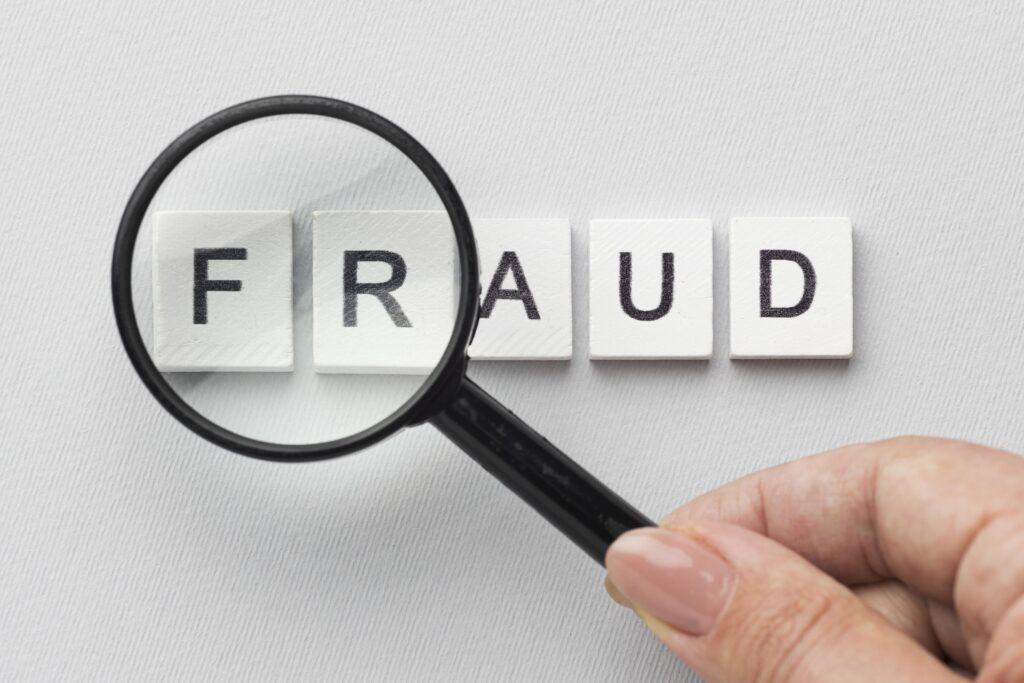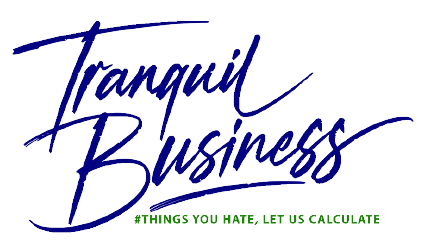
Understanding Bookkeeping or Accounting Fraud- A Silent Threat to Small Businesses
Small businesses play a role in economies, making contributions to job creation and innovation. However, they often face challenges, including vulnerabilities that make them susceptible to fraudulent accounting practices. Accounting fraud, which involves illegal actions, can have repercussions for small businesses. It can lead to losses, damage their reputation, and even force them to shut down.
Nearly half of the occupational fraud comes from the operations department (15%), accounting department (12%), sales department (11%), and upper management (11%). There is a $117,000 median loss per fraud case and a $1,783,000 average loss per fraud case, and it can’t be denied that it is a huge amount of money to lose.
In this blog post, we will explore what accounting fraud entails, examine practices, discuss the impact of undetected fraud on small businesses, identify different types of accounting frauds provide insights on detecting and preventing frauds, and highlight the importance of leveraging technical solutions like outsourcing services to protect against this silent threat.
What is meant by Accounting fraud?

Accounting fraud, which is sometimes referred to as financial statement fraud or bookkeeping fraud, occurs when individuals intentionally manipulate or falsify records to deceive stakeholders such as investors, creditors, or regulatory bodies. Those who commit accounting fraud often do so to present an impression of a company’s status, profitability, or stability, thereby concealing the actual financial situation.
Common fraudulent practices in financial records
There are practices commonly found in accounting fraud. Some examples of these practices include:
1. Fictitious Revenues: Recording sales that never actually occurred to inflate revenue numbers and create an impression of the company’s performance.
2. Overstated Assets: Overvaluing assets, like inventory or equipment, to boost the company’s balance sheet.
3. Understated Liabilities: Concealing or downplaying liabilities to give the appearance of a company.
4. Off-Balance Sheet Transactions: Keeping transactions off the balance sheet to manipulate financial ratios and indicators.
5. Expense Misclassification: categorizing expenses as assets to spread their impact over periods and artificially enhance financial results.
6. Ghost Employees: Fabricating employees on the payroll who don’t exist, to divert funds for gain.
Consequences of undetected fraud on small businesses
Small businesses are particularly vulnerable to the devastating effects of accounting fraud. If fraud goes undetected, it can have repercussions:
1. Losses: Fraudulent activities drain a company’s resources causing significant losses that could potentially cripple the business.
2. Damage to Reputation: Discovering accounting fraud can inflict harm on a company’s reputation eroding trust among customers, investors, and partners.
3. Legal Consequences: Those responsible for perpetrating accounting fraud can face actions such, as fines, penalties, or even imprisonment.
4. Business Closure: In cases where accounting fraud is left unchecked, it can ultimately lead to the closure of the business.
Types of Accounting Frauds

Accounting fraud can take on forms. There are types of accounting fraud that one should be aware of:
1. Revenue Recognition Fraud: This occurs when companies manipulate the recognition of revenue to artificially inflate their sales figures.
2. Inventory Fraud: Sometimes, companies overstate the value of their inventory. Fail to account for shrinkage.
3. Expense Fraud: Some individuals engage in falsifying expenses. Try to pass off expenses as legitimate business expenses.
4. Payroll Fraud: Certain schemes related to payroll can occur, such as creating “ghost employees” or falsifying hours worked.
5. Financial Statement Fraud: In this type of fraud financial statements are manipulated to present a picture of the company well well-being.
6. Vendor Fraud: Collusion, with vendors can lead to the creation of invoices or overpaying for goods and services.
7. Bookkeeper Fraud: This occurs when an employee wrongly manipulates bookkeeping or accounting records for their gain.
8. Cyber Fraud: With business activities online, there comes a big risk of cyber frauds like phishing and online scammers.
How to know that your business has any Accounting Frauds?
Detecting accounting fraud can be quite challenging. Business owners and stakeholders need to remain vigilant, for warning signs. Some flags could indicate possible accounting fraud:
1. Unexplained Discrepancies in Finances: Keep an eye out for unexplained differences between records and bank statements or accounts.
2. Excessive Transactions or Adjustments: Take note of any increase in the volume of transactions or frequent adjustments to the accounting records.
3. Unexpected Changes in Financial Ratios: Be cautious if you notice significant changes in financial ratios without any apparent explanations.
4. Unaccounted Inventory Discrepancies: It’s important to address differences between inventory counts and recorded inventory levels that cannot be easily explained.
5. Inconsistencies in Lifestyle Choices: Pay attention to shifts in the lifestyle or spending habits of employees or company stakeholders without an increase in income.
6. Peculiar Employee Behavior: Be alert if employees display signs of stress or unexpectedly resist taking vacations or allowing others access to their work.
Remaining vigilant for these warning signs can help businesses mitigate the risks associated with accounting fraud.
How to prevent fraud?
To prevent accounting fraud, it is important to take an approach and establish an internal control system. Here are some preventive measures you can consider:
1. Segregation of Duties: Make sure different individuals are responsible for handling aspects of transactions to create checks and balances.
2. Regular Internal Audits: Conduct audits to identify any potential vulnerabilities or irregularities.
3. Employee Education: Provide training to employees regarding fraud risks, ethical behavior, and the consequences associated with activities.
4. Whistleblower Policy: Establish a whistleblower policy that encourages employees to report any activities without fear of retaliation.
5. Ethical Culture: Foster a culture that promotes transparency, integrity, and accountability as values.
6. Password management: Passwords must not be shared through any communication channel, rather recommended way is to use password management tools for security.
7. Stay up to date: Educate yourself and stay updated about the latest ways and tools to keep track of your work to avoid any chance of fraud or scams.
How leveraging technical solutions can help in fraud detection and prevention
Small businesses can greatly benefit from utilizing solutions to improve their ability to detect and prevent fraud. One effective strategy is to partner with bookkeeping and accounting firms that provide expert outsourcing services. These firms offer the latest technology and knowledge in management and fraud detection allowing small businesses to tap into expert advice, industry-standard practices, and strong internal control systems that effectively safeguard against accounting fraud.
Endnote:
Accounting fraud is a concern for businesses as it can greatly impact their financial well-being and reputation. To protect against this danger, small businesses must be able to identify warning signs establish preventive measures, and utilize technical solutions like outsourcing services. By promoting a work environment and implementing an internal control system, small businesses can effectively reduce the risks associated with accounting fraud and concentrate on their growth and prosperity.
Contact us to book a free consultation to learn more about how we can help you in accounting fraud prevention and opting for good accounting practices.
